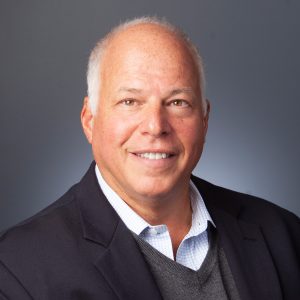Viewpoints from Craig Hasday
The Fortune 500 list is out, and I was slightly surprised to see that the big four health insurance companies: UnitedHealthcare, CVS-Aetna, Cigna and Anthem are all in the top 30 U.S. companies ranked by revenue. These companies represent nearly $757 billion in revenue and include the three largest pharmacy benefit managers (PBMs): Optum, Caremark, Express Scripts, and Anthem has now started Ingenio, a new, but certain to be powerful, PBM. They represent $437 billion in market value, $30 billion in profits, and have about 759,300 employees. The revenue results do not factor in the “premium equivalents” of self-insured employers which make up about 60% of all American, employer-provided coverage. These four companies control healthcare as we know it – and disrupting the present system will send earthquake-like ripples through the economy.
Yet, we are facing the most significant worldwide health debacle in the last 100 years, and in the modern healthcare era, almost 25% of the population finds itself uninsured. And warnings from the insurance industry are that premiums might have to increase by 40% due to coronavirus. As we look to one of the most divisive presidential elections ever, the Democratic Party is clearly aligned with greater government involvement in healthcare with proposals ranging from introducing a public option, where individuals can opt into a public system, to a complete single-payer government takeover. Joe Biden, who advocated a more moderate expansion of the Affordable Care Act (ACA), has begun to stump for lowering the Medicare eligibility age from 65 to 60. And even the Republicans will need to do something to combat cost escalations of this magnitude.
The stars are aligning for change. So, what should we do? Here are my thoughts for fixing healthcare:
- I don’t advocate radical change or massive market disruption; our fragile economy won’t survive tearing down 20% of the gross domestic product (GDP). I also don’t think that expanding Medicare will work. Moving the next-most-costly group of employees (age 60–65) is going to add significantly to the Medicare burden and would significantly reduce the non-governmental covered lives. Charges to non-governmental plans are greater than the amounts which Medicare and Medicaid allow. This overpayment is an effective subsidy of Medicare. Moving lives from a non-governmental payor to Medicare would lower this subsidy. Also, Medicare is very inefficient, and providers have too many opportunities to find and take advantage of system workarounds.
- Instead, I believe we should shift Medicaid to a block grant system and encourage states to use these grants to significantly enhance community-based care. I think that basic healthcare in the U.S. should be a right. The care our nation provided to everyone impacted by COVID-19 can be a framework for this expansion. These community-based systems can be a safety net to those at the lower income level with coverage at unaffordable cost-sharing levels or in the event of significant illness. I think the individual mandate should be enhanced with real penalties put in place to encourage those that can afford coverage to buy it.
- Employers should also have a pay-or-play tax, but there should not be a penalty for high-value plans and we should not disguise the true costs by creating a non-tax-deductible excise tax. Whether an employer opts to pay for healthcare or pay the penalty, both should have the same tax treatment.
- On the payment side, risk-based contracting with incentives for providers to render acceptable care should be a mandate – whether in a network or not. I also believe that Medicare should shift to more value-based reimbursement. New drug costs, as well as year-to-year cost increases, must be government-regulated and I believe the value of blockbuster drugs should be compensated by government incentive grants and not by those unfortunate enough to require the drug.
- Our system has to change from providing “sick care” to creating incentives for individuals to focus on “well care” and checkups – and immunizations and testing should be required to be eligible for care.
I am an advocate of incremental change, but the current environment will let us make a bold one.
For our coronavirus coverage, visit epicbrokers.com/coronavirus
Join the conversation – participate in our In It Together pulse surveys on our COVID-19 strategic collaboration and idea-sharing forum. Visit epicbrokers.com/insights/preparing-for-the-new-normal
Related Content
Products
Employee Benefits Consulting
Our dedicated EPIC benefits team is focused on delivering better outcomes – to both your benefits program ...
Products
Wellbeing & Health Management
Our Wellbeing and Health Management consultants help you create a strategy around population health ...
Products
Compliance
Our expert Compliance team provides comprehensive consulting services and in-depth education regarding the ...



